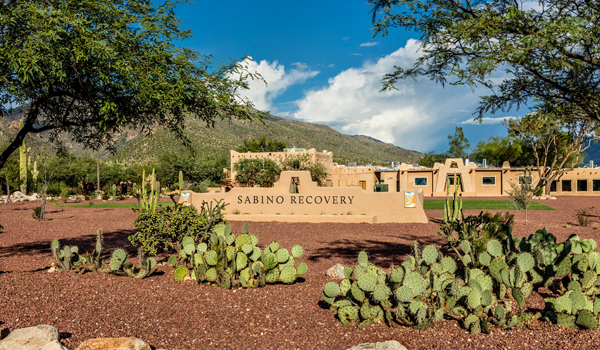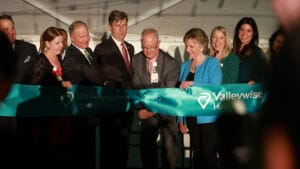 Sabino Recovery, a new and highly anticipated upscale residential recovery center situated on 100 acres of lush desert landscape northeast of Tucson, AZ, announced that it is officially open and welcoming guests. One of the only providers of its kind in the country, Sabino Recovery was founded to deliver a truly groundbreaking therapeutic model for healing and recovery based on the belief that trauma is the core issue that drives unhealthy and painful behaviors. Its 35-day residential program is designed to focus primarily on core trauma such as grief and loss and attachment failure using a range of clinical and integrative therapies, while also treating the presenting symptoms such as PTSD, depression, anxiety, substance abuse and addictions, relationship issues, mood changes, phobias, sleep issues and other behavioral health issues.
Sabino Recovery, a new and highly anticipated upscale residential recovery center situated on 100 acres of lush desert landscape northeast of Tucson, AZ, announced that it is officially open and welcoming guests. One of the only providers of its kind in the country, Sabino Recovery was founded to deliver a truly groundbreaking therapeutic model for healing and recovery based on the belief that trauma is the core issue that drives unhealthy and painful behaviors. Its 35-day residential program is designed to focus primarily on core trauma such as grief and loss and attachment failure using a range of clinical and integrative therapies, while also treating the presenting symptoms such as PTSD, depression, anxiety, substance abuse and addictions, relationship issues, mood changes, phobias, sleep issues and other behavioral health issues.
“We founded Sabino Recovery because we knew there was a need for a better, more effective way to treat trauma – once trauma is addressed, resolution of other behavioral concerns, such as addiction, are easier and more successful,” said Jack O’Donnell, co-founder and CEO of Sabino Recovery. “We are incredibly proud of the complete experience we’ve created to help people toward lasting recovery.”
Sabino Recovery realizes the vision of partners and co-founders Pat Manley and Thomas Isbell along with Jack O’Donnell, CEO, and Nancy Jarrell O’Donnell, MA, LPC, EAP, CSAT, President of Clinical Services and Operations. O’Donnell and Jarrell O’Donnell are both respected authorities in the field of behavioral health and addiction. Jarrell O’Donnell has worked in counseling and psychology for over 20 years, and was previously Clinical Director at Sierra Tucson. She developed the Sabino Model over many years of working with clients as an effective way to approach trauma based on the latest research in neuroscience. Guided by this model, Sabino Recovery was established to make customized, integrated rehabilitation a reality.
Following the proprietary Sabino Model, Sabino Recovery prescribes a custom blend of medical, psychological and integrative therapies for each individual to most effectively treat the whole person and core issues of trauma. Few truly integrative recovery programs currently exist, with “integrative and holistic” therapies typically consisting of add-on massages and activities. The Sabino Model places equal emphasis on psychotherapy, including equine therapy, somatic experience, EMDR, and neuro-psychodrama, as well as medical treatment and integrative therapies, which include adventure therapies, acupuncture, yoga and massage. These therapies are chosen and built into individual client treatment plans to address somatic disturbances, dissociation, and other trauma symptoms.
Remarkably, Sabino Recovery is also the first treatment center to feature an on-site state-of-the-art sleep clinic, allowing for sleep assessments and extensive lab testing in order to provide a complete picture of individual client needs. With sleep issues being a common factor in many conditions caused by trauma, the sleep clinic provides a key component of treatment that is lacking at other facilities.
“Everyone has the capacity for change, and with the proper support and treatment, suffering can be transformed into a tool for personal growth,” said Nancy Jarrell O’Donnell, President of Clinical Services and Operations. “That is the goal of Sabino Recovery, and it’s at the heart of everything we do.”
The Sabino Model creates a cohesive and emotionally safe communal experience between residents and staff. Sabino Recovery’s team of 50 employees from a range of specialties are selected in part for their ability to nurture, provide compassion and empathy, and each person on Sabino Recovery’s clinical staff has a personal background in trauma. Rather than operate on a total deprivation model, Sabino Recovery works to empower individuals with real life skills for lasting recovery. While meals are designed to promote overall wellness, guests are not asked to give up any foods and are able to enjoy music, an Internet Café with computers, and phone calls to loved ones throughout their stay.




